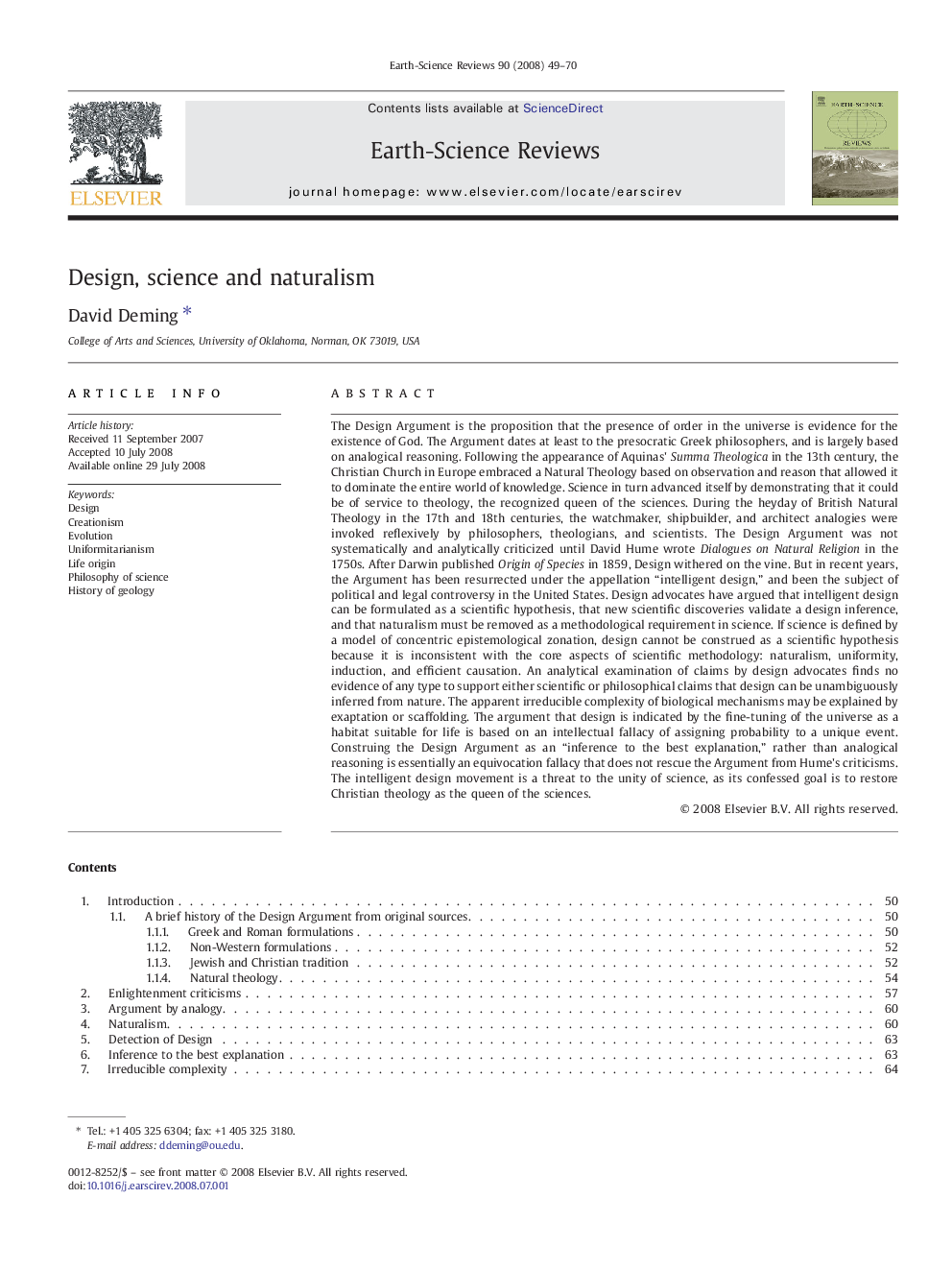| کد مقاله | کد نشریه | سال انتشار | مقاله انگلیسی | نسخه تمام متن |
|---|---|---|---|---|
| 4726265 | 1640030 | 2008 | 22 صفحه PDF | دانلود رایگان |

The Design Argument is the proposition that the presence of order in the universe is evidence for the existence of God. The Argument dates at least to the presocratic Greek philosophers, and is largely based on analogical reasoning. Following the appearance of Aquinas' Summa Theologica in the 13th century, the Christian Church in Europe embraced a Natural Theology based on observation and reason that allowed it to dominate the entire world of knowledge. Science in turn advanced itself by demonstrating that it could be of service to theology, the recognized queen of the sciences. During the heyday of British Natural Theology in the 17th and 18th centuries, the watchmaker, shipbuilder, and architect analogies were invoked reflexively by philosophers, theologians, and scientists. The Design Argument was not systematically and analytically criticized until David Hume wrote Dialogues on Natural Religion in the 1750s. After Darwin published Origin of Species in 1859, Design withered on the vine. But in recent years, the Argument has been resurrected under the appellation “intelligent design,” and been the subject of political and legal controversy in the United States. Design advocates have argued that intelligent design can be formulated as a scientific hypothesis, that new scientific discoveries validate a design inference, and that naturalism must be removed as a methodological requirement in science. If science is defined by a model of concentric epistemological zonation, design cannot be construed as a scientific hypothesis because it is inconsistent with the core aspects of scientific methodology: naturalism, uniformity, induction, and efficient causation. An analytical examination of claims by design advocates finds no evidence of any type to support either scientific or philosophical claims that design can be unambiguously inferred from nature. The apparent irreducible complexity of biological mechanisms may be explained by exaptation or scaffolding. The argument that design is indicated by the fine-tuning of the universe as a habitat suitable for life is based on an intellectual fallacy of assigning probability to a unique event. Construing the Design Argument as an “inference to the best explanation,” rather than analogical reasoning is essentially an equivocation fallacy that does not rescue the Argument from Hume's criticisms. The intelligent design movement is a threat to the unity of science, as its confessed goal is to restore Christian theology as the queen of the sciences.
Journal: Earth-Science Reviews - Volume 90, Issues 1–2, September 2008, Pages 49–70